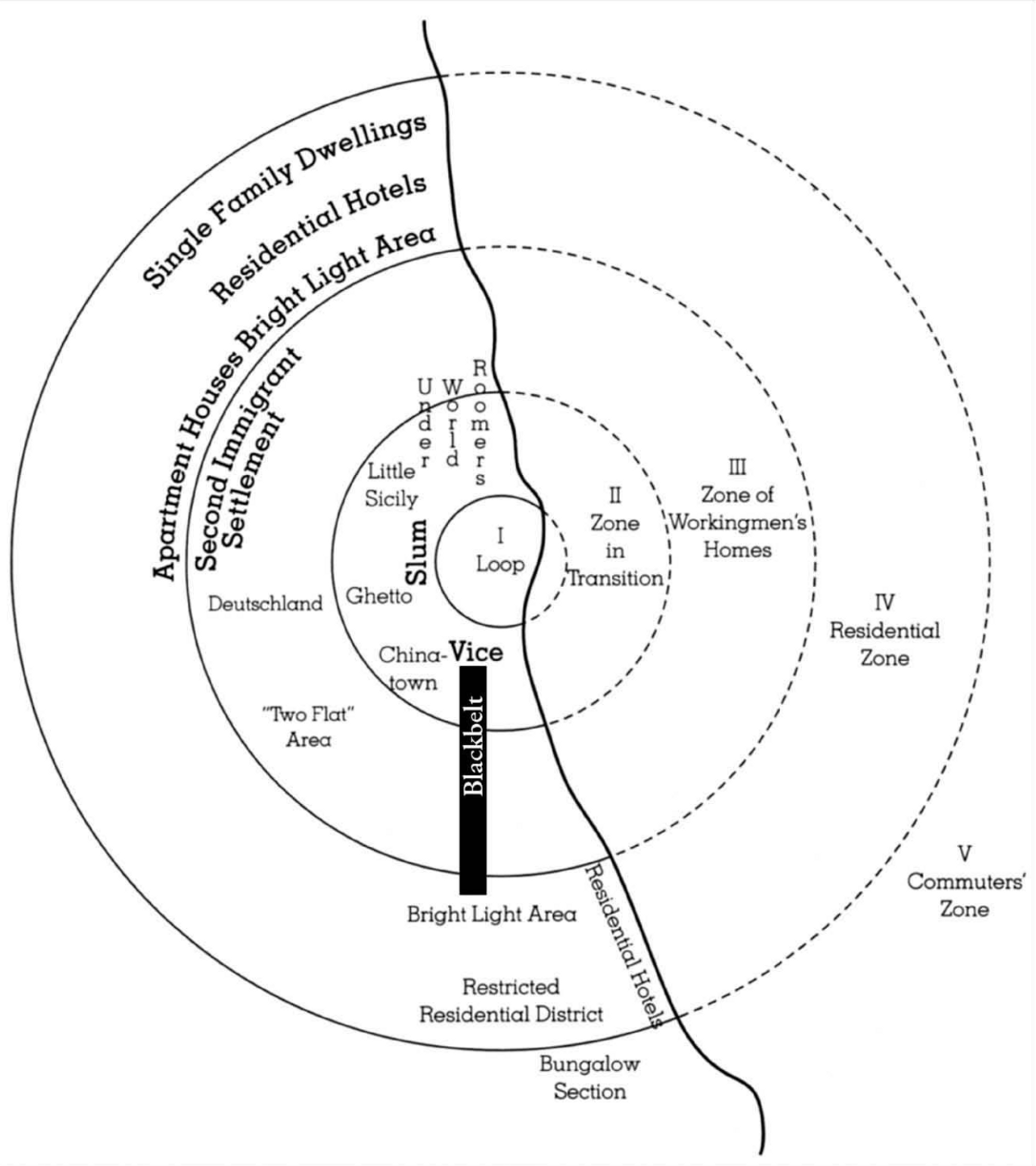Chapter 2: The Origins of Urban Life and Urban Sociology
0.0(0)
0.0(0)
Card Sorting
1/25
Earn XP
Study Analytics
Name | Mastery | Learn | Test | Matching | Spaced |
|---|
No study sessions yet.
26 Terms
1
New cards
hinterland
the relatively less developed area outside the boundaries of the large city
2
New cards
agora or hestia kione (Athens)
public hearth or center of the community
3
New cards
omphalos (Athens)
center of the world
4
New cards
insulae (Rome)
apartment buildings
5
New cards
Ferdinand Tönnies (1855–1936)
a sociologist who focused on the transition from community (Gemeinschaft; families/relatives working and interacting together) to society (Gesellschaft; strangers working and interacting and working together), which resulted in a weakening of social ties and the loss of a shared sense of belonging to a meaningful community
6
New cards
Emile Durkheim (1858–1917)
a sociologist who argued that preindustrial villages involved mechanical solidarity and that industrial cities involved organic solidarity
7
New cards
mechanical solidarity
individuals being held together by predetermined bonds of kinship and social interdependence (preindustrial villages)
8
New cards
organic solidarity
individuals had greater opportunities for interaction with a wide range of people because of the division of labor (industrial cities)
9
New cards
Friedrich Engels (1820–1895)
a sociologist who argued that the evils of industrialization and capitalism were intensified by the space of the city.
10
New cards
Georg Simmel (1858–1918)
a sociologist who argued that everyday existence within the city altered the way people thought and acted compared to traditional society; created the 8 characteristics of urbanism
11
New cards
Urbanization
refers to the origins of cities and the process of city building.
12
New cards
Urbanism
studies the ways of life that may be found within an urbanized space.
13
New cards
Modernity
the transition from a traditional society based on intimacy or kinship (“primary” relations) and by a feudal economy based on barter, to an industrial society situated within cities and dominated by impersonal, specialized social relations based on compartmentalized roles (“secondary” relations), and by a money economy based on rational calculations of profit and loss.
14
New cards
human ecology
the study of the process of human group adjustment to the environment
15
New cards
The Chicago School
a place for individuals to learn about, teach, and research information about sociology, urbanism, human ecology, etc. focused on social disorganization and pathology rather than capitalism and the role of government in urban development
16
New cards
Walter Firey
urban sociologist who made a critique of the Chicago School in his study “Sentiment and Symbolism as Ecological Variables”, by stating “sentiment” and “symbolism” were important ecological factors that influenced spatial patterns of development in urban space
17
New cards
Lewis Wirth
a sociologist who focused on characteristics about the city that produced certain unique behaviors; his approach looks at an “urban way of life”.
18
New cards
Wirth’s Factors of Urbanism
The effect of size, the effect of density, and the effect of heterogeneity
19
New cards
Robert Park
urban sociologist who focused on the social organization of the city, and how it resulted in a distinct and highly complex division of labor because of the struggle for survivial in the city
20
New cards
Biotic Level (Park)
refers to the forms of organization produced by the competition of species over scarce environmental resources. (basic premise of urban ecology)
21
New cards
Cultural Level (Park)
refers to the symbolic and psychological adjustment processes and the organization of urban life according to shared sentiments
22
New cards

Ernest Burgess
an urban sociologist who created a model of concentric zones to explain spatial competition between business and commercial activities; the pattern of homes, neighborhoods, and industrial and commercial locations; and the shifting of population and activities.
23
New cards
sector theory
a critique of Burgess’s Model of Concentric Zones made by Homer Hoyt (1933), who argued that cities were carved up by unevenly shaped sectors within which different economic activities tended to congregate together
24
New cards
regional perspective
a critique of Burgess’s Model of Concentric Zones that the relative independence of multiple centers within the larger metropolitan region.
25
New cards
Chauncy Harris and Edward Ullman (1945)
two urban sociologists who critiqued Burgess’s Model of Concentric Zones by arguing that cities had multiple centers rather than a single urban core.
26
New cards
Roderick McKenzie
an urban sociologist who viewed the fundamental quality of the struggle for existence was position, or location, for the individual, the group, or institutions such as business firms;
viewed changes in the metropolitan region as the product of shifts in transportation and technology
\-the pre-railway era (before 1850)
\-the railway era (1850–1900)
\-the motor transportation area (1900 to present)
viewed changes in the metropolitan region as the product of shifts in transportation and technology
\-the pre-railway era (before 1850)
\-the railway era (1850–1900)
\-the motor transportation area (1900 to present)